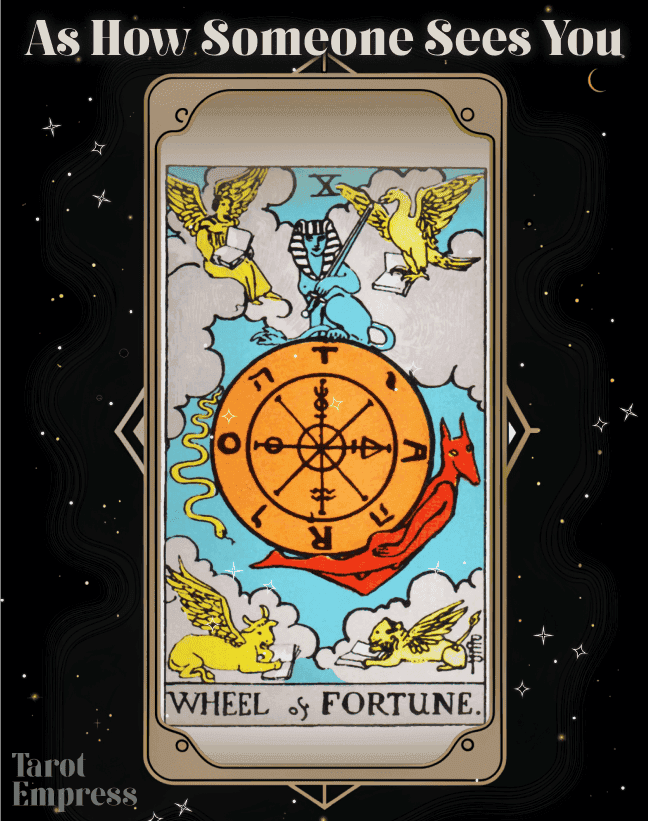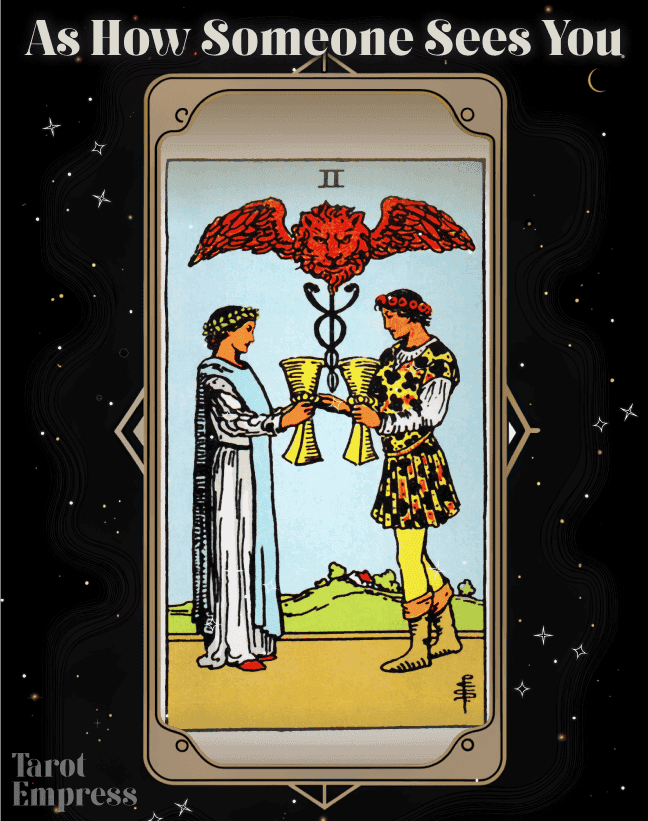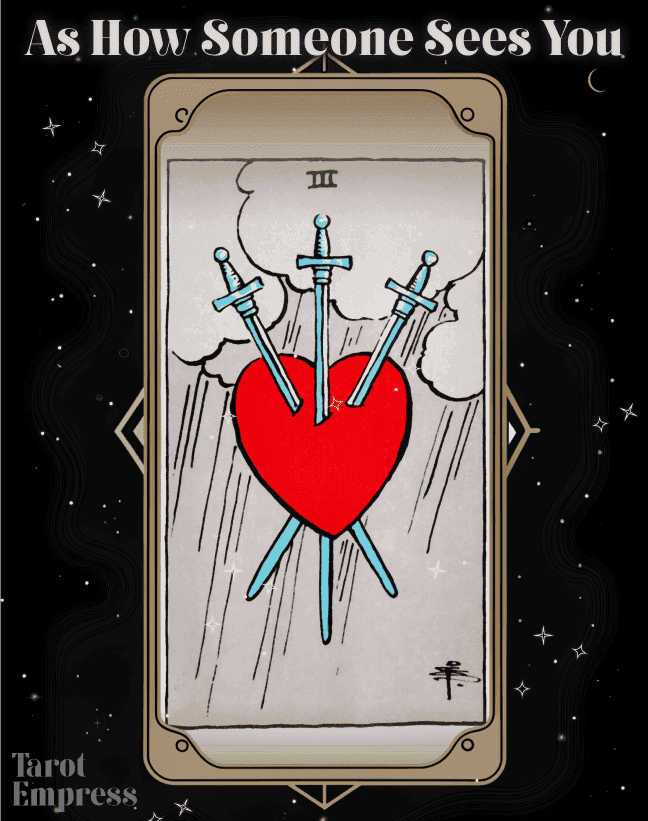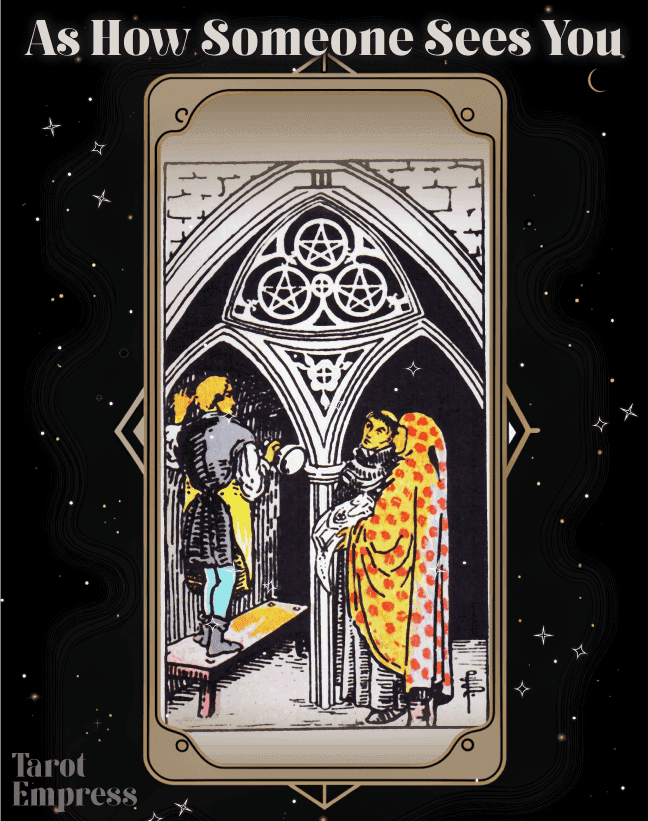Table of contents
- The Hidden Dynamics of the Five of Swords in Intention
- Five of Swords Upright as Intentions: Establishing Dominance and Strategic Maneuvering
- Five of Swords Reversed as Intentions: Hidden Motives and Resolution Avoidance
- 5 of Swords as Someone's Intentions: Upright vs Reversed
- Interpretation of 5 of Swords as Intentions
- FAQs
The Five of Swords captures a complex interplay of conflict, strategy, and the allure of victory. When we turn our attention to this intriguing card, particularly through the lens of intentions, it opens up a realm of insightful reflections. Understanding the 5 of Swords as intentions is akin to decoding the mind's intricate tapestry, where every nuance and subtlety can alter the course of action. Whether upright or reversed, the card presents a profound influence on what drives someone's actions and the underlying motives behind their decisions.

The Hidden Dynamics of the Five of Swords in Intention
Drenched in an aura of confrontation and triumph, the Five of Swords is a card that does not shy away from the harsher realities of human interaction. This card often symbolizes a moment when one individual achieves dominance, often at the expense of others. The intentions behind this card can range from assertiveness and strategic thinking to manipulation and deceit.
When the 5 of Swords appears upright, it reflects intentions centered around assertion and the need to prove oneself. There could be a drive to win an argument, to establish dominance, or to achieve a victorious position, often without considering the emotional costs to others involved. On the other hand, when reversed, the card sheds light on hidden motives or unresolved conflict, perhaps signaling a retreat from confrontation or an unresolved anxiety that lurks beneath the surface.
Five of Swords Upright as Intentions: Establishing Dominance and Strategic Maneuvering
The upright Five of Swords is a harbinger of intense focus on victory, often tied with a certain degree of ruthlessness. Here are some specific actions or behaviors one might exhibit under its influence:
Unyielding Persistence: There's a relentless drive to succeed, even if it means pushing boundaries. The person may be single-minded in their pursuits and unwilling to entertain opposing viewpoints or compromise.
Strategic Calculations: Every move is meticulously planned. This could involve plotting out steps ahead of time and anticipating reactions from others to maintain the upper hand.
Assertive Communication: When engaged in discussions or debates, this individual asserts their opinions forcefully, aiming to dominate the conversation and leave no room for opposition.
Risk-taking Behavior: There’s a willingness to venture into unknown territories or take calculated risks, all in the name of securing a win. This could manifest in personal or professional arenas, where conventional norms are often sidelined for innovative strategies.
Prioritizing Personal Gain: The focus is squarely on personal benefit, even if it comes at a cost to relationships. This approach often results in short-term victory but long-term repercussions.
Strategic Dominance in Action
The following scenarios shed light on how the upright 5 of Swords can add complexity to someone's intentions:
Dominating Conversations: In a group discussion, an individual might consistently interrupt others and steer the conversation towards their ideas, leading to frustration and resentment among peers.
Aggressive Negotiations: During a business deal, this person might adopt an uncompromising stance, seeking to maximize their benefit at the expense of collaboration, which can result in a temporary win but potentially damage long-term partnerships.
Competitive Behavior: In a workplace, an employee might undermine their colleagues’ efforts to secure a promotion, leading to a toxic work environment and fractured team dynamics.
Controlling Relationships: Within personal relationships, someone might consistently push their partner to conform to their desires, leading to an imbalance of power and potential emotional strain.
Risky Decisions: A leader might pursue a high-risk project without adequate consultation, driven by the desire to outshine competitors, which could backfire if the project fails.
Five of Swords Reversed as Intentions: Hidden Motives and Resolution Avoidance
When the Five of Swords appears reversed, the focus shifts from overt conflict to subtler, often more insidious forms of behavior. Here are some actions and behaviors that might emerge under its reversed influence:
Avoidance of Confrontation: A reluctance to engage in direct conflict or face disagreements head-on. This can lead to passive-aggressive behavior or avoidance tactics.
Subterfuge: Hidden motives come into play as the individual may resort to behind-the-scenes maneuvers to achieve their ends without direct confrontation.
Regret and Remorse: A sense of guilt or second-guessing previous actions that may have caused harm. This might result in hesitant and inconsistent behavior.
Seeking Resolution: There's a desire to mend fences and resolve conflicts, albeit in a roundabout way. The individual might seek to repair relationships without directly addressing past conflicts.
Internal Conflict: Internal turmoil is prevalent as the person grapples with unresolved issues and conflicting emotions, often leading to indecisiveness.
Quiet Turbulence in Action
The complexities arising from the reversed 5 of Swords as intentions can manifest in various subtle ways:
Indirect Communication: Instead of addressing issues head-on, a person might drop hints or use intermediaries, leading to misunderstandings and prolonged conflicts.
Passive-Aggressive Behavior: An individual might agree to requests but secretly harbor resentment, leading to half-hearted efforts and eventual fallout.
Hesitation in Decisions: In professional scenarios, a manager might hesitate to implement necessary changes due to fear of backlash, which can stall progress and innovation.
Secret Maneuvers: Someone might engage in covert actions to undermine a colleague, rather than confronting issues directly, fostering an environment of distrust and secrecy.
Emotional Withdrawal: In relationships, an individual may withdraw emotionally rather than confronting issues, leading to unresolved tension and a growing emotional distance.
5 of Swords as Someone's Intentions: Upright vs Reversed
Researching the upright and reversed intentions of the 5 of Swords across various facets of life offers a window into how this card’s energies can manifest.
In Personal Relationships:
- Upright: A person might strive to assert dominance in interactions, perhaps by always needing to be right or by winning arguments at any cost. This can cause friction and lead to unresolved resentment in relationships.
- Reversed: The person may avoid direct confrontations, leaving issues unresolved. They might prefer to smooth over conflicts without addressing the root causes, leading to an underlying tension that never fully dissipates.
In Professional Settings:
- Upright: The individual might engage in cutthroat tactics to get ahead, such as taking credit for others' work, undermining colleagues, or fiercely competing for recognition. This contributes to a high-stakes environment with a focus on personal gain.
- Reversed: Subtle undermining or passive-aggressive behavior becomes prominent. The person might engage in office politics, quietly maneuvering behind the scenes to secure their position without facing open conflict.
In Personal Growth and Decisions:
- Upright: There's a relentless push towards achieving personal milestones, often disregarding the emotional toll on oneself or others. The focus is on tangible results and personal victory.
- Reversed: Indecision and internal conflict might hinder progress. The individual could struggle with self-doubt or guilt over past actions, leading to a paralyzed state where few definitive steps are taken.
Interpretation of 5 of Swords as Intentions
Understanding the Five of Swords in the context of intentions provides valuable insights into the underlying motives driving behavior. The upright position emphasizes an overt quest for dominance, a strategic mindset, and often ruthless pursuit of personal gain. Conversely, the reversed position highlights hidden motives, avoidance, and internal conflict.
When interpreting this card in personal readings, it's essential to consider the broader context and the surrounding cards in the spread. The Five of Swords does not operate in isolation; it interacts with other energies and influences, painting a comprehensive picture of someone’s intentions and how they might manifest in real-life scenarios.
Navigating Intentions: A Thoughtful Approach
One way to think about the Five of Swords is through the lens of balance. While the drive to assert oneself and achieve victory is potent, it's important to balance this with empathy and awareness of the emotional landscape. Winning at any cost can lead to isolation and broken relationships, whereas a more measured approach might yield longer-term harmony and understanding.
From a reversed perspective, addressing internal conflicts and hidden motives directly can unlock paths to resolution and personal growth. Suppressing these emotions or avoiding confrontation can lead to lingering issues, but by bringing them into the light, individuals can find a more authentic and peaceful way forward.
Balancing Power and Harmony with Five of Swords
The 5 of Swords presents a poignant reminder of the complexity of human intentions. This card, with its multifaceted implications, urges us to examine not just the actions we take, but the underlying motives driving those actions. Whether you're navigating personal relationships, making pivotal career decisions, or seeking personal growth, the intentions behind your actions shape the outcome in profound ways.
By understanding the intricate dynamics of the Five of Swords, both upright and reversed, we are better equipped to navigate life's challenges with mindfulness and integrity. Embrace the wisdom this card offers, and let it guide you toward more thoughtful and balanced choices in your journey.
Remember, tarot is not just about predicting the future; it’s about understanding ourselves and the energies at play within our lives. Through the lens of the Five of Swords, we glimpse the profound impacts of our intentions and the ripples they create in our reality.
FAQs
How does the Five of Swords influence one's intentions?
The Five of Swords, whether upright or reversed, highlights the nuances of conflict and strategy. When it appears in a reading, it suggests that a person's intentions are shaped by a desire to win, possibly at the expense of harmony and collaboration. This card urges us to consider the underlying motivations of assertive or strategic behavior.
What insights do upright Five of Swords cards provide about someone's intentions?
When the Five of Swords is upright, it signifies intentions that are assertive, strategically calculated, and oriented towards achieving personal victory. It reflects a mindset focused on overcoming challenges and dominating situations, even if it involves some level of ruthlessness.
What do reversed Five of Swords cards disclose about someone's hidden motives?
In a reversed position, the Five of Swords sheds light on subtler, more covert intentions. This could entail avoidance of direct conflict, passive-aggressive behavior, or an internal struggle with guilt and remorse. It reveals a reluctance to confront issues head-on, often leading to indirect actions and unresolved tension.
How can understanding the Five of Swords as intentions help in interpreting someone's actions?
By examining the Five of Swords in the context of intentions, you gain deeper awareness of the driving motivations behind someone's actions. This card uncovers the strategic maneuvers and potential conflicts at play, providing clarity on why certain decisions are made and how they impact relationships and outcomes.
Can the Five of Swords influence the decisions and actions one takes?
Absolutely. The Five of Swords holds significant sway over decision-making processes, specifically highlighting competitive strategies and the pursuit of personal goals. Whether aiming for success in career, personal relationships, or other areas, this card can guide your understanding of why certain paths are chosen and the potential consequences of those choices.
What specific situations might the Five of Swords illuminate within a reading?
The Five of Swords can reveal dynamics in various scenarios, such as power struggles within a team, conflicts in personal relationships, or the drive behind a significant career move. It calls attention to moments when strategic maneuvers or conflicts arise, urging you to reflect on both the immediate gains and long-term impacts of those actions. This card invites consideration of the balance between seeking victory and maintaining harmony.









